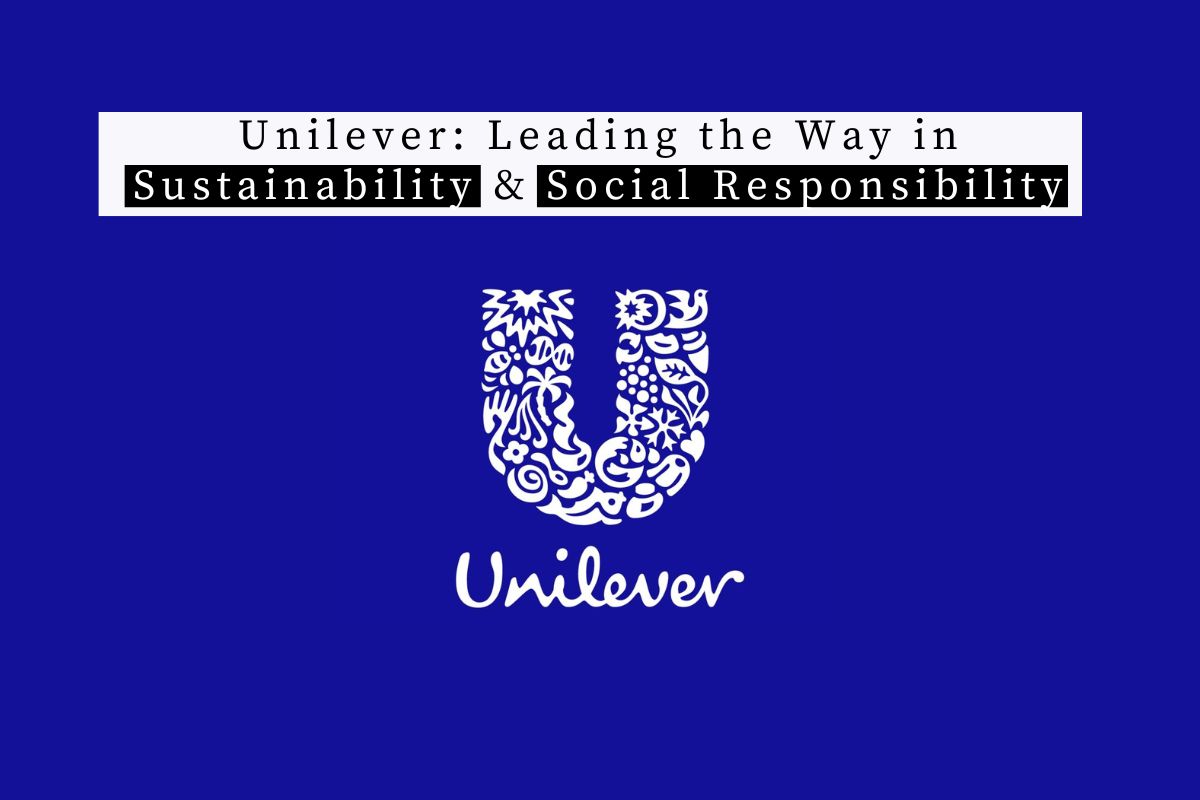Table of Contents
ToggleIntroduction
Unilever is a well-known company that has an extensive range of products. From Personal Care to Food, Refreshment, and Home Care, Unilever has a diverse product portfolio that caters to various needs. However, the question remains: is the company only concerned with making profits, or does it care about the environment and society as well?
In this article, we will explore the history of Unilever and how it has emerged as one of the most sustainable corporations in the world.
Unilever’s History: From Dutch Margarine to British Soap
Unilever’s roots can be traced back to 1929 when two companies, Margarine Unie (a Dutch margarine producer) and Lever Brothers (a British soapmaker), merged to help each other with the supply of fat. Margarine Unie was a merger of two margarine makers that began their operations in the 1870s and 1880s. On the other hand, Lever Brothers started in 1885 and is known for its Sunlight brand, the world’s first packaged and branded laundry soap. The key ingredient in both products was animal fat. The merger between these two companies gave birth to Unilever.
In the first few decades, Unilever launched some of its most enduring brands that are now worth over $1 billion. By the 1970s, Unilever had control over 30% of Western Europe’s ice cream market and now sells almost a quarter of all ice cream in the world. Their strategy focuses on impulse purchases, such as freezer stands in parks or by the counter in convenience stores.
Unilever’s Controversies
Like any other company, Unilever is not immune to controversy. In 2002, Unilever, P&G, and the German company Henkel agreed to fix prices on detergents for three years. Unilever and P&G were fined over €300 million, while Henkel got off for ratting them out. More recently, Unilever was on trial in South Africa for price-fixing with a big Malaysian conglomerate, and the watchdog tackling the case wants 10% of their local turnover as a fine.
On an ecological level, Unilever has played a part in the devastating impact that palm oil has had on the environment. Indonesia is losing 2% of its rainforest every year, with palm oil production being the biggest cause. Unilever is one of the largest consumers of palm oil, and its supply chain contributes to the destruction of rainforests.
Unilever’s Commitment to Sustainability
Despite the controversies, Unilever is committed to sustainability and social responsibility. In 2017, the company announced a new set of goals, which included cutting its environmental impact in half by 2030 and sourcing 100% of its agricultural materials sustainably by the same year. This commitment is a huge step forward for the company, as it shows that it is not only concerned with being profitable but also with being responsible and sustainable.
Unilever has also made strides in improving the lives of its workers and suppliers. The company has a Sustainable Living Plan, which includes commitments to fair pay, safe working conditions, and ethical sourcing. Unilever has partnered with organizations like Oxfam to improve the livelihoods of smallholder farmers who supply the company with raw materials.
Unilever’s Efforts Have Not Gone Unnoticed
Unilever’s efforts to improve sustainability and social responsibility have not gone unnoticed. In 2018, the company was named the most sustainable corporation in the world by Corporate Knights, a media, and investment advisory company. Unilever has also been recognized for its work in reducing its plastic waste. In 2017, the company committed to making 100% of its plastic packaging reusable, recyclable, or compostable by 2025. Unilever also launched the “Loop” initiative, which aims to eliminate single-use packaging by offering products in reusable containers that can be refilled. The initiative has since expanded to include other companies, such as Nestle and PepsiCo.
Unilever’s commitment to sustainability and social responsibility goes beyond its own operations. The company has been advocating for sustainable business practices and encouraging other companies to follow its lead. In 2019, Unilever CEO Alan Jope called on businesses to take bold action on climate change, stating that “we need to fundamentally change the way the economy works…there is no middle ground anymore.”
Conclusion
In conclusion, Unilever is a company that has shown its commitment to sustainability and social responsibility. While it has faced controversies in the past, the company has taken steps to address these issues and has set ambitious goals for the future. Unilever’s efforts have not only earned it recognition and accolades but also serve as an example for other companies to follow. As consumers become increasingly conscious of the impact of their purchasing decisions, companies like Unilever have a crucial role to play in creating a more sustainable future.
Additional Resources
To keep learning and advancing your career, we highly recommend these additional resources:
7 Financial Models Used by Investment Bankers












